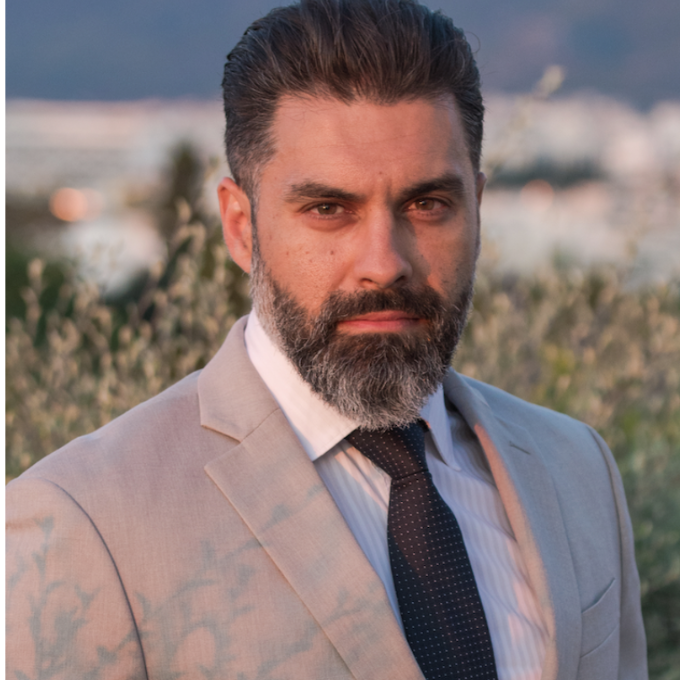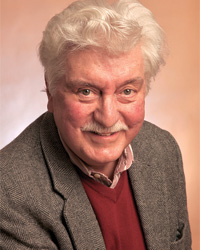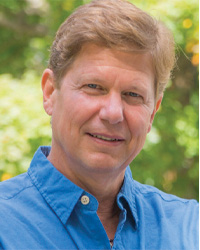Past Lecture Series
During the summer and winter terms, BOLLI offers its members complimentary lecture series led by distinguished scholar-teachers.

Billy Flesch
Professor of English
Akira Kurosawa's Seven Samurai (1954) just may be the greatest film ever made and shows that Kurosawa certainly deserves his reputation as the cinematic equivalent of Shakespeare. As with Shakespeare, we can imagine breaking the 207-minute movie down into five acts. In this course we'll discuss the whole film over the course of five days, more or less imagining it as having a five-act structure. (We may also mention some precursors, like American Westerns, and some tributes to the movie, like Pixar's A Bug's Life.)
Billy Flesch
Professor of English
High and Low (1963) is among Kurosawa's very greatest movies. Although at first blush it looks quite different from Seven Samurai, also starring Toshiro Mifune, it was nevertheless just as influential a movie and inaugurated the police procedural that have become so popular ever since. But it's far more than that, and its exploration of love, loyalty, and psychology is extraordinary. (And you've never seen Mifune play a role as different from his performance in Seven Samurai.) Participants should read Ed McBain's short 87th precinct novel King's Ransom (1959) beforehand, but we'll mainly be going through the movie scene by scene.

Gil Harel
Professor of Musicology
There are many metrics by which the success of a Broadway production might be measured: longevity, revenue from ticket sales, licensing, merchandise, etc, as well as critical acclaim reflected in awards and laurels. Typically, shows that do well in the latter category have profound longevity, surviving and thriving through revivals, tours, and scholarly attention. In this class, Prof. Gil Harel will discuss five shows that have won some of the most coveted prizes in the business, such as the Tony Awards for "Best Musical" and "Best Original Score"
Using a multi-disciplinary approach, he will analyze the score and libretto of five acclaimed shows each representing different composers, writers, and eras in the canon: The Sound of Music, Company, Les Misérables, Avenue Q, and Next to Normal. Together, these shows present a combination of period drama, conceptual vignettes, irreverent humor, and groundbreaking tackling of taboo subject matter. Despite their differences, they are united in attaining tremendous success, and thus cementing their place on the stage and in the repertoire.
Gil Harel
Professor of Musicology
Jazz historians, performers, and fans alike can all point to 1959 as a watershed year. Indeed, the scope of the music created in that single year is difficult to overstate, with celebrated musicians including Miles Davis, John Coltrane, Dave Brubeck and others contributing memorable albums and charts to the repertoire.
In this lecture series, Professor Gil Harel will consider the critical and artistic impact of the seminal albums of 1959, and in doing so, discuss the trajectories pursued by the artists who made the year so special. We will begin with Miles Davis, who recorded Kind of Blue in the spring. John Coltrane (who played on Kind of Blue) would leave the Davis group, forming his own quartet and recording Giant Steps shortly thereafter. Dave Brubeck, who had been playing with his quartet for nearly a decade, recorded the unlikely commercial hit Time Out, which featured the perennially popular "Take Five" chart. For each of these artists, we will consider not only the fruits of 1959, but how these works shaped their artistic paths in the years to come.

Maura Jane Farrelly
Professor of American Studies
Join us for three sessions with author and Brandeis professor Maura Jane Farrelly as she discusses her recently released book, Compliments of Hamilton and Sargent: A Story of Mystery and Tragedy on the Gilded Age Frontier. The book is the winner of this year's Spur Award in historical non-fiction, given out annually by the Western Writers of America.
Farrelly explores the tumultuous lives of three people from distinguished East Coast families who sought new beginnings in Wyoming amidst scandal and societal pressures. Their stories highlight how, by the 1890s, technological advancements and the burgeoning power of celebrity journalism made it nearly impossible for anyone to escape a difficult past, even in the remote West. The book draws parallels to today's digital age and the debate about whether people have a "right to be forgotten".
In her three sessions, Farrelly will discuss the history; the story; and then the research and writing process involved in creating the book. She will assume all participants have read the book, so if you don't want any spoilers, make sure you come prepared!
Author Bio: Maura Jane Farrelly is Associate Professor of American Studies at Brandeis University, just outside Boston, Massachusetts. She has worked as a reporter in Atlanta, Washington, DC, and New York.

Executive Director of the Council for International Relations–Greece
The Eastern Mediterranean has long been a meeting point of civilizations and a flash point for global rivalries. This course begins with a historical introduction to the region—from ancient empires and early Christianity to the Arab conquest and Ottoman rule—laying the groundwork for understanding today’s political dynamics.
We will then turn to contemporary geopolitics: territorial disputes, maritime competition, and energy exploration. Special attention will be paid to the Greece–Turkey–Cyprus triangle, a critical fault line that continues to shape NATO policy and U.S. strategic interests. Turkey’s ambitions under President Erdoğan—extending from the Eastern Mediterranean to Syria, the Balkans, and even the Sahel—will be a major focus.
We will explore the current situation in Syria, including insights from my recent visit to Damascus, and assess Egypt’s internal pressures and its vital role in European security, especially as a host of millions of migrants.
In light of the Israel-Hamas war, we will analyze the stakes for regional peace and U.S. diplomacy. The final sessions will examine the Eastern Mediterranean’s role as a vital maritime corridor—home to the Suez Canal and now a growing theater of security concerns due to recent Houthi attacks in the Red Sea.
Throughout the lectures, we will connect the region’s past with its present, offering a deeper understanding of why this region matters—not just to its neighbors, but to the United States and the international order.
Athanasios Grammenos is a scholar of International Relations. He is an Adjunct Lecturer at Aristotle University, an SGL at BOLLI, and Executive Director of the Council for International Relations–Greece. He has published in peer-reviewed journals on geopolitics, international affairs, and history. He is a former Library Fellow at Sacramento State University and a recipient of the NATO Scholarship from the Greek Ministry of Foreign Affairs. He is the author of Orthodox American and editor of The Revolution of 1821 and Modern Greece. His poetry collection Margaron was published in 2023. His forthcoming book on Greece’s geopolitical history will be released in summer 2025.
Lecture Series: Preserving America's Four Freedoms: The Heart of Our Democracy - Summer 2025
BOLLI is partnering with Dartmouth Osher Lifelong Learning Institute to bring members livestream access to their summer lecture series.
We believe the world and domestic situations today demand that we renew our understanding of the Four Freedoms and the role of our government and political system in ensuring their preservation. The Constitution of the United States contains the political philosophy and a system of checks and balances necessary for the operation of a democratic state to serve all its people. Have we lost the understanding of our individual and collective responsibilities required to make it work? It is time to renew our understanding of what is important to us as individuals and to the future of our country.
Please click on the titles below to learn more about each lecture.


 Linda L. Fowler
Linda L. Fowler

